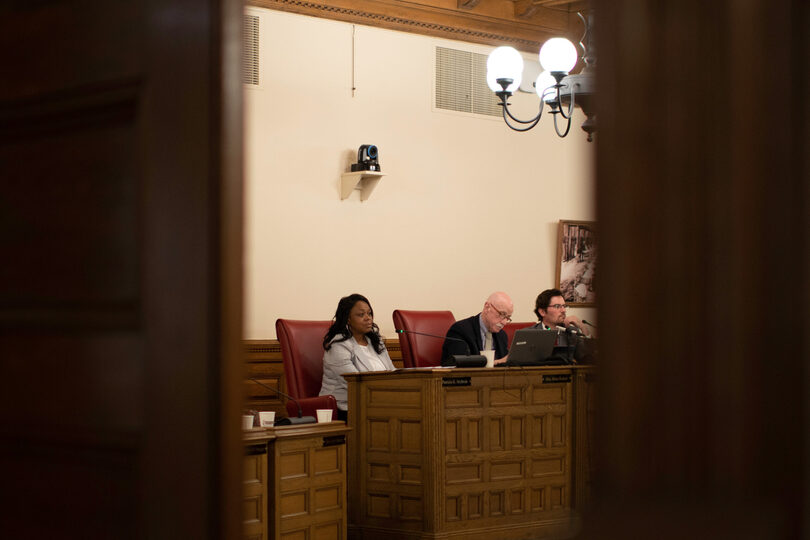Common Council unanimously rejects Fiscal Year 2026 budget

The Syracuse City Common Council unanimously voted to reject Mayor Ben Walsh's Fiscal Year 2026 budget. The finalized budget will take effect July 1. Ike Wood | Asst. Photo Editor
Get the latest Syracuse news delivered right to your inbox.
Subscribe to our newsletter here.
The Syracuse City Common Council unanimously rejected Mayor Ben Walsh’s $348 million Fiscal Year 2026 budget, according to a Thursday afternoon release.
Councilors opted to seek independent recommendations and analysis from an outside accounting firm, the release states. The original budget — which aimed to increase internal revenue, invest in the city’s housing strategy and implement a 2% increase on water rates and property taxes — would result in a $27 million deficit, the release states.
The council’s budget revisions do not include a water fee or property tax increase, and would not reduce Syracuse Fire Department or Syracuse Police Department staff. The release also states the revisions will not result in the loss of any city jobs.
The revisions reduce the proposed deficit by over $15 million, according to the release.
In a Thursday afternoon release, Syracuse City Auditor Alexander Marion said this year’s budget process was “secretive” and not transparent. He agreed that cutting law enforcement is not an “appropriate course of action” for any city.
“Making these decisions with amendments released in the middle of the night before the vote and no public comment is a disservice to the people of the City of Syracuse,” Marion wrote. “And while I believe now was not the right time for a tax or water increase, we need to have a robust and public discussion over spending priorities and service delivery. I do not believe this budget, done in darkness, accomplishes that goal.”
At an April 30 public hearing, community members raised concerns about the budget to the council, with many weary about the efficiency of the city’s spending. The proposed budget increased from last year’s by $7.4 million.
The council said its revisions are fair, according to the release. Amid “global financial uncertainty,” councilors said it’s essential to identify new ways to spend responsibly and increase revenue as relief funds from the COVID-19 pandemic run out.
Walsh will have 30 days to consider a veto or pass the council’s amendments, syracuse.com reported. The council would need at least six out of nine votes to override his veto.
The finalized budget will take effect July 1.






